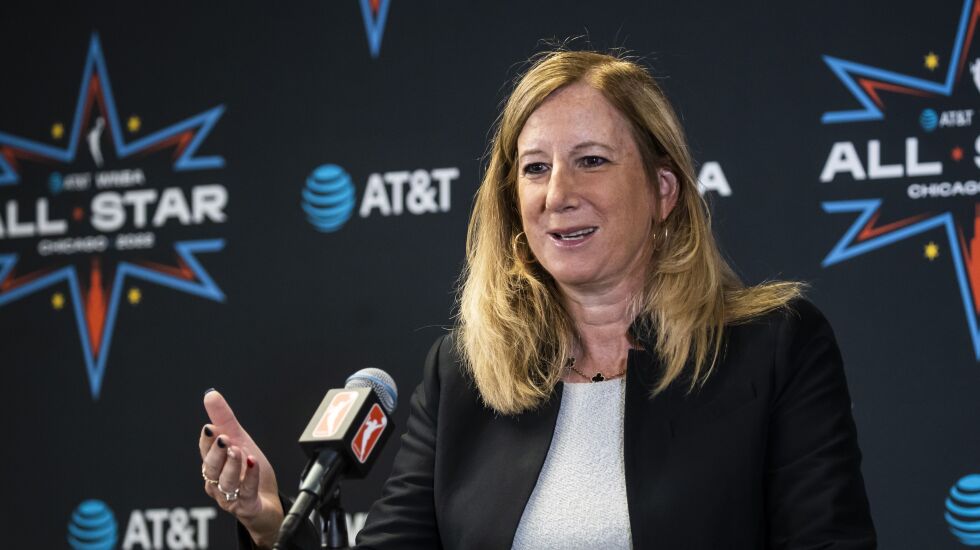
DALLAS — WNBA players long have led the pro sports landscape when it comes to using their voices and platforms to effect change in their communities and nationally.
One recent example came in 2020, when the Atlanta Dream sparked a leaguewide campaign for the Rev. Raphael Warnock for a U.S. Senate seat from Georgia after his adversary and former Dream owner Kelly Loeffler adamantly expressed her opposition to the Black Lives Matter movement and criticized the WNBA’s social-justice efforts. The league played a large role in flipping the seat — and control of the Senate — to the Democrats when Warnock was elected in January 2021.
In 2020, the WNBA and the players’ union formed the Social Justice Council with the intent to educate and mobilize people to address inequalities and systemic racism that largely have affected communities of color.
Long before the Supreme Court overturned Roe v. Wade on June 24, declaring there was no constitutional right to an abortion, WNBA players were advocating for abortion rights and a woman’s right to choose.
Immediately after the Supreme Court’s decision, the NBA and WNBA issued a joint statement in support of a woman’s right to maintain control over her body and to make decisions about her health and future.
USA Today published a state-by-state guideline of abortion laws after the ruling. Of the 11 states with a WNBA team, two have statutory and constitutional protections for women seeking abortions: Illinois and California. Four have statutory protections for women: Nevada, Washington, Connecticut and New York. Abortion is legal in the District of Columbia, as the Democratic-controlled Congress oversees the city’s laws. Five states have no protections in place for women or have restrictive laws: Indiana, Arizona, Texas, Georgia and Minnesota.
As WNBA commissioner Cathy Engelbert analyzes potential expansion cities with the intention of adding at least two new teams by 2025, how will abortion laws affect those decisions? The answer is less clear than you would think for a league with such a progressive history.
When asked about the WNBA’s stance about expanding to states with restrictive abortion laws, Engelbert mostly dodged the questions, opting to say the league continues to advocate for gender and health equity.
‘‘We certainly will continue to advocate for women’s rights, reproductive rights, choice and all of that,’’ Engelbert said during the WNBA’s All-Star Weekend. ‘‘We’ll continue to be leaders on that, and we’ll evaluate those kinds of things when we’re looking at [potential expansion] cities.’’
She also was asked whether the league would consider not awarding the All-Star Game or another marquee event to a state with restrictive laws and responded it would be taken into consideration.
Players have expressed concern for their peers in states with restrictive abortion laws. Most recently, Texas sued the Biden administration after it sent a memo to state officials reminding them of an existing law that requires patients to receive appropriate screenings and stabilizing treatment — in some cases meaning abortion — to save the life of the mother.
Engelbert said league officials will sit down with players after the season to help them in whatever way they want to use their platform.
‘‘[The players] haven’t really gone into which states are going to allow and which aren’t,’’ Seattle Storm star Breanna Stewart said during All-Star Weekend. ‘‘As this becomes a bigger and bigger thing, it’s going to be a feeling like you don’t want to travel to those states. You don’t want to put yourself in those positions, and it’s really sad.”







